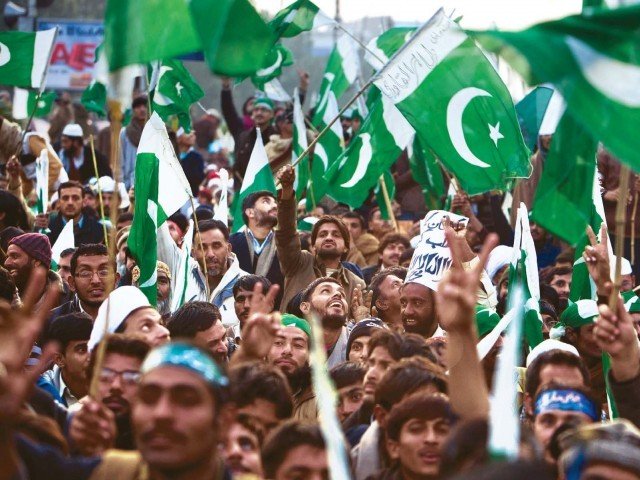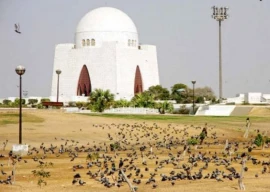
Most of the capital’s populace has been glued to their TVs for the past two days. With the Minhaj-ul-Quran International (MQI) sit-in and Supreme Court orders that may or may not require the arrest of the prime minister, it would be safe to assume that the city would be brimming with tension.
However, the only people who seem concerned are the ones who were kept up all night by the incessant use of megaphones and loud speakers during speeches, and later to play music into the early hours. While Jinnah Avenue itself was bustling, many commercial areas near and around the protest area were deserted, as banks, schools and many private offices chose to err on the side of caution.
“There is no right for an individual to come to Islamabad with thousand of devotees and ruin life for thousands of city residents,” said Fasiur Rehman, an eighth-grader at a private school.
He said his final exams will start in the second week of March, and he is worried about the workload because his school has announced a four-day closure.
Meanwhile, teachers were not much happier, with a public school teacher from Sector G-6/4 echoing the same sentiment. “Final exams are going to start from March 14. How is it possible [for students] to complete their curriculum if the protest continues?” she said, asking not to be named.
City residents were also less-than-impressed by the government’s decision to grant permission for the sit-in. “Giving them permission to set up this circus in the heart of the capital and making locals feel like hostages... it’s a failure on the government’s part,” said Nafeesa Begum, who runs a beauty parlour in sector G-9.
The standstill at most government facilities extended to the district courts, where Advocate Fasial Khan suggested that the government should establish an area outside the city proper for long marches and protests. “For the last three day, residents have been held hostage and nobody has been able to appear in the lower courts,” he noted.
However, a few kilometres south-west of the sit-in, life began showing some semblance of normalcy. In Sector I-8, residents seemed at ease, even though banks remained closed. Most of the shops had reopened and business had begun picking up in the evening.
Most residents seemed content to believe that the long march would not last for more than a few days. “I feel this is all a drama, the timing of the arrest warrant and Qadri’s speech seemed a little too perfect,” said Yasir Khan, who was looking for a working ATM with his two children by his side.
Many residents could be seen buying provisions from shops that had opened after two days. “My shop was the only one open yesterday, simply because I knew people would need provisions,” said Mohammad Munir, the owner of a general store in the market.
Meanwhile, farther west, across the unmanned checkpoints, one could be forgiven for thinking nothing had happened. Passing through sectors F-10, F-11, G-10 and G-11, markets were bustling, pedestrians roaming, and kids were having a field day knowing that classrooms would not beckon them for another day. At McDonald’s in Fatima Jinnah Park, some teenagers seemed unaware of what was happening a few kilometres up the road.
As Maheen, a student dining at the restaurant said, “It has come to a point where we know uncertainty is part and parcel of this country...what is there to worry about? This is change, right?”
Edited by Vaqas Asghar
Published in The Express Tribune, January 16th, 2013.
1731570357-0/elon-musk-(1)1731570357-0-405x300.webp)
-(1)1717678110-0/Kendrick-(1)-(1)1717678110-0-165x106.webp)






1732428532-0/BeFunk_§_]__-(43)1732428532-0.jpg)








COMMENTS
Comments are moderated and generally will be posted if they are on-topic and not abusive.
For more information, please see our Comments FAQ